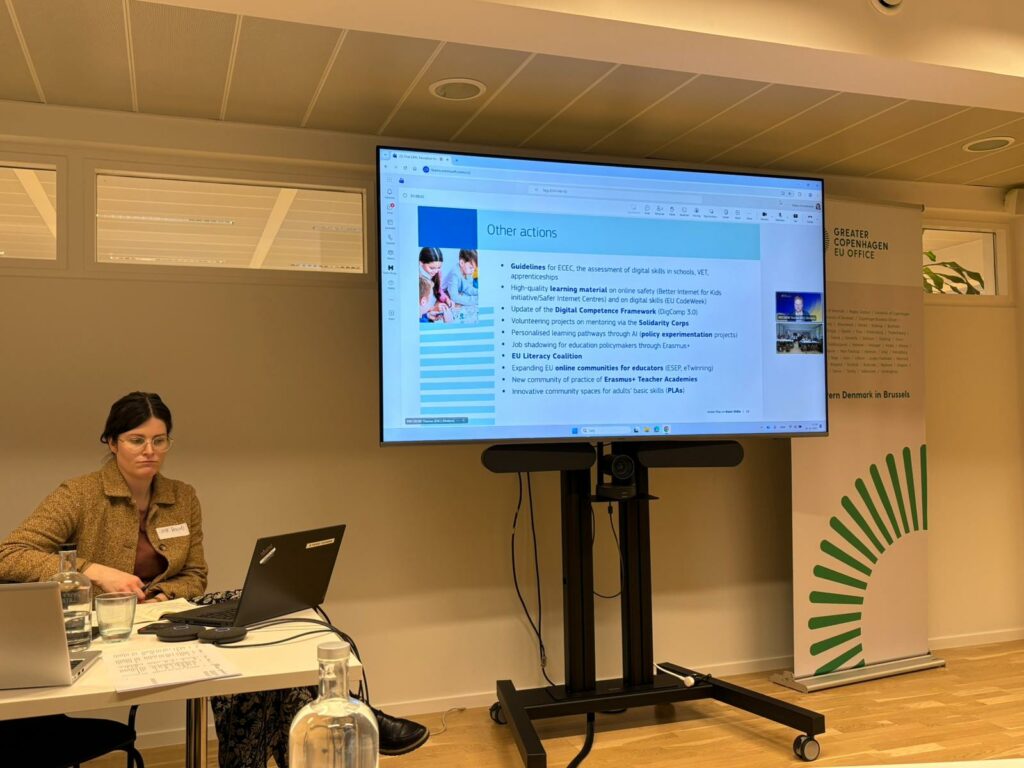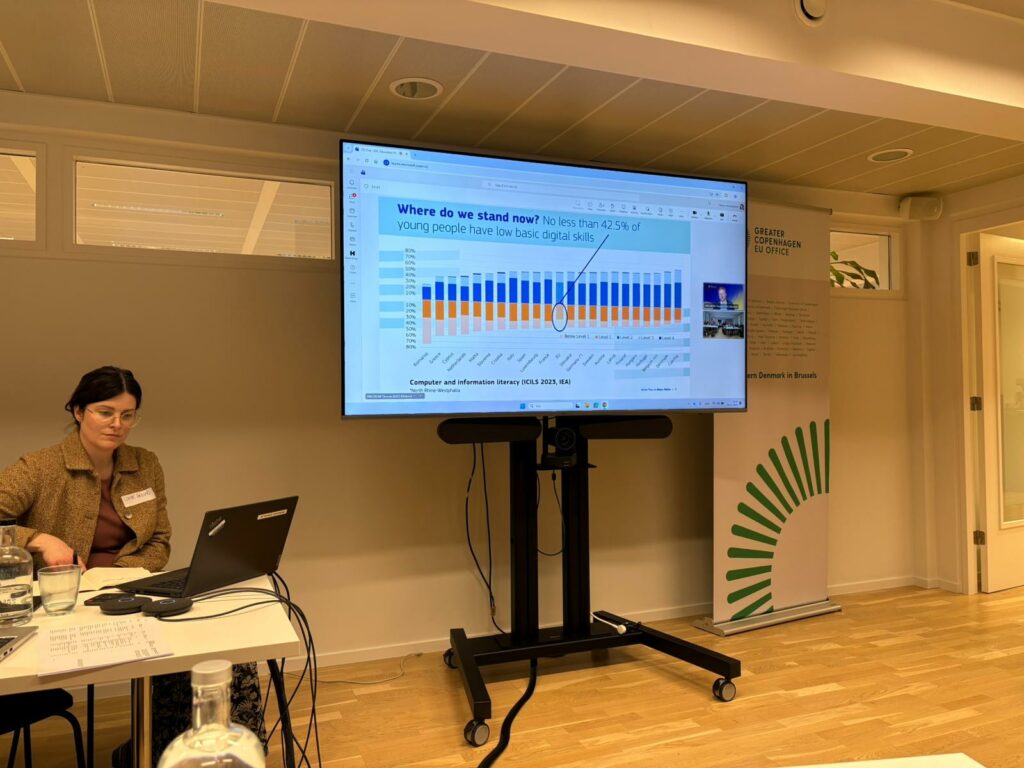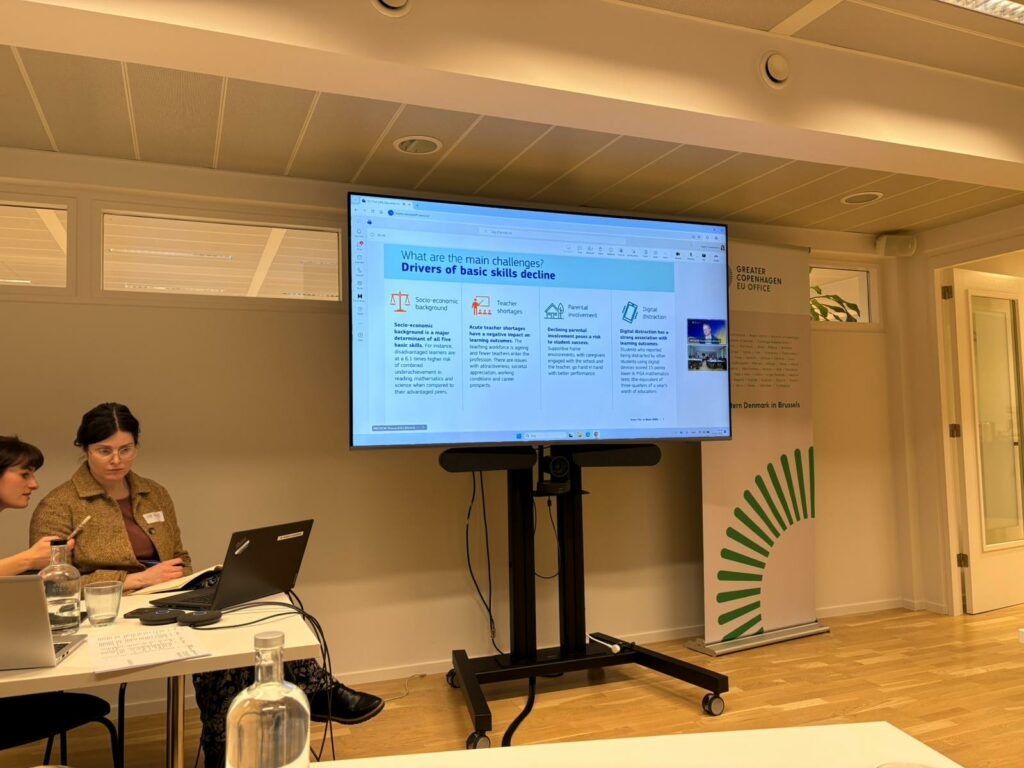EARLALL Participated in BXL Education Network Meeting: “Union of Skills: From EU Initiative to Local and Regional Change”
25/11/2025

On 24 November 2025, EARLALL took part in the BXL Education Network Meeting titled “Union of Skills: From EU initiative to local and regional change”. The gathering brought together a network primarily composed of regional and local Brussels-based representations and liaison offices that cover topics related to education, employment, skills, and competences, with a shared focus on supporting the implementation of EU policies across territories.
EARLALL members Brittany and Castilla y León were present, and EARLALL Associated Member SwissCore was among the meeting organisers. Participants were welcomed by representatives from Central Denmark Region, SwissCore, and the Greater Copenhagen EU Office, who opened the meeting and set the scene for an afternoon dedicated to the role of skills in shaping Europe’s future.
Presentation by the European Commission: Action Plan on Basic Skills
The keynote presentation was delivered by Thomas Pritzkow, Policy Officer at DG EAC (Unit B2 – Schools and Multilingualism). He provided an overview of the forthcoming Action Plan on Basic Skills and shared recent findings from international assessments, including OECD and PISA data. The figures illustrated persistent challenges:
- 26.2% of young people have low reading proficiency
- 29.5% struggle with mathematics
- 24.2% face difficulties in science
- 63.1% of young people demonstrate an adequate level of civic knowledge


Mr Pritzkow highlighted four main drivers of the decline in basic skills:
- Socio-economic background: young people from disadvantaged backgrounds face persistent structural barriers that significantly impact their learning outcomes.
- Teacher shortages: many countries report a shortage of qualified teachers, especially in key subjects, which affects the quality and continuity of learning.
- Parental involvement: declining parental engagement reduces essential support structures for children and young people, influencing overall performance and motivation.
- Digital distraction: increased exposure to digital content, social media, and online entertainment has created new attention challenges both inside and outside the classroom.
Key Areas of the Action Plan
The Action Plan on Basic Skills focuses on three central pillars:
- Boosting basic skills teaching and learning
- Supporting educators
- Enabling supportive environments
Mr Pritzkow also announced that a Basic Skills Support Scheme is currently in development.
Following the presentation, participants engaged in a lively Q&A session, reflecting the shared commitment of regions and local actors to address skills challenges in a coordinated manner.
EARLALL Contribution: Advocating for Regions and Cities
EARLALL took the floor after the European Commission to present its recently published Position Paper on the MFF Erasmus+ proposal. The intervention highlighted the significant underrepresentation of regional and local authorities in the current proposal, despite their strategic importance in translating EU-level ambitions into meaningful territorial impact.
The Position Paper calls for:
- A stronger role for regions and cities as strategic partners
- Simpler procedures and improved support mechanisms
- A balanced approach to skills and lifelong learning priorities
- Predictable and accessible funding across all education and training sectors
EARLALL emphasised that effective implementation of EU initiatives, especially those related to skills, depends on empowering regions, which serve as the bridge between policy design and real-world local impact.
Continued Cooperation
The meeting concluded with a discussion among network members and planning for future activities. EARLALL will continue to engage actively in the BXL Education Network and other EU-level platforms to ensure that regional and local perspectives remain at the heart of European education and skills policies.

